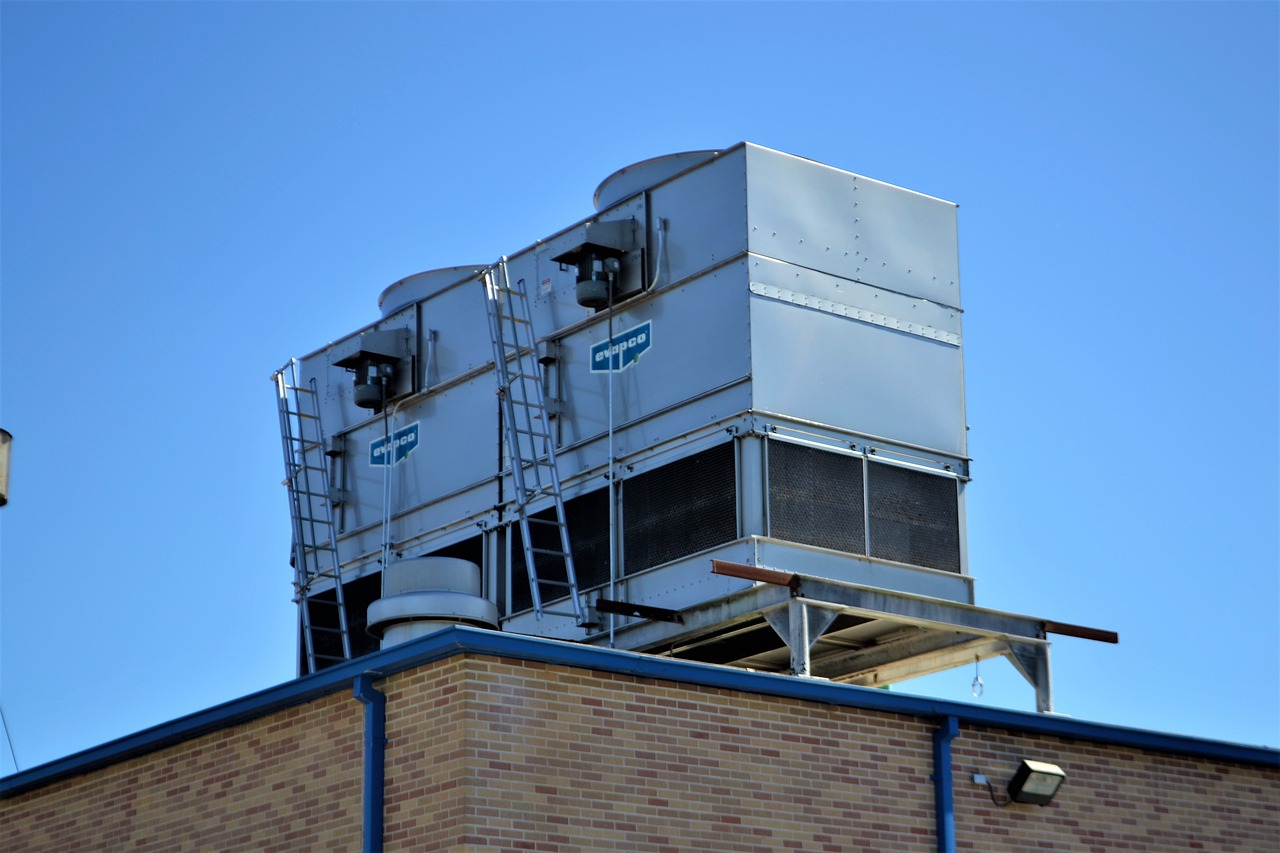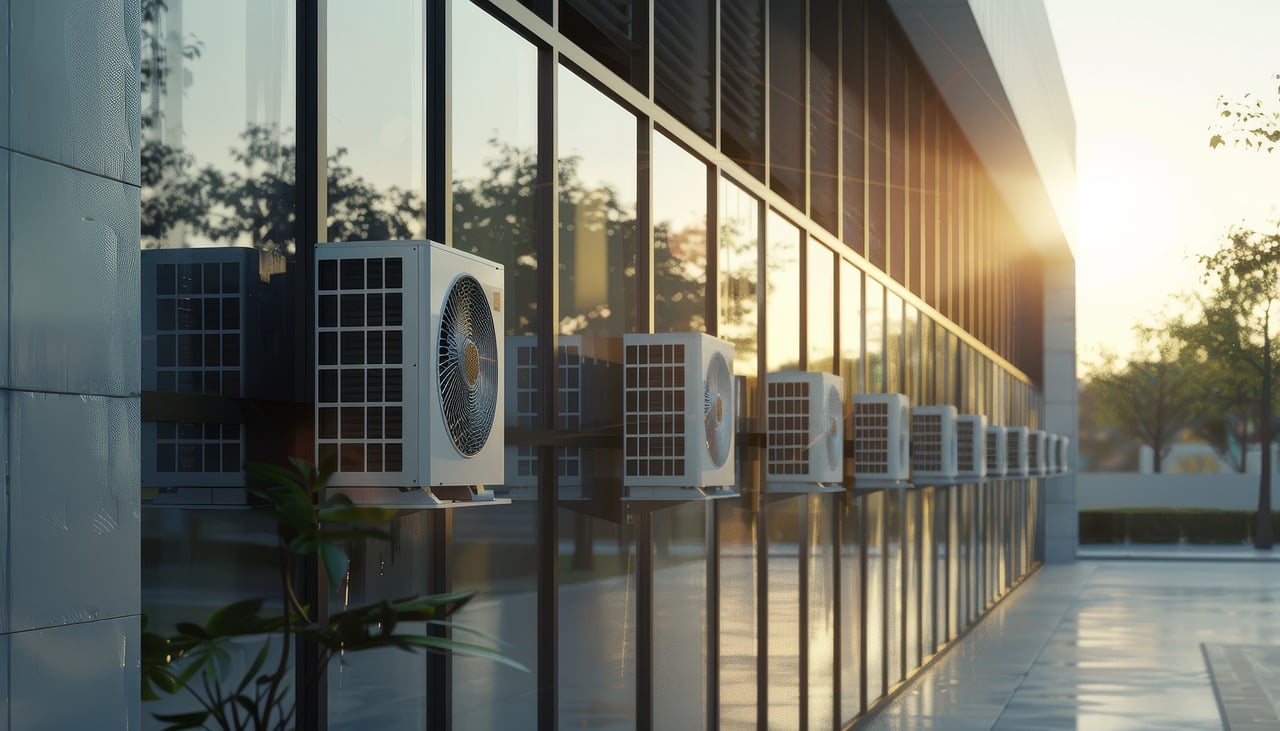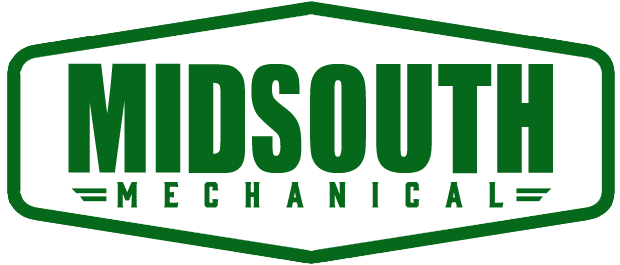Optimizing HVAC Piping Design for Large-Scale Commercial Projects
In large-scale commercial projects, the design of HVAC piping plays a pivotal role in ensuring the system’s overall effectiveness and efficiency. Proper HVAC piping design is critical not only for maintaining indoor air quality and comfort but also for enhancing the energy efficiency and operational reliability of the HVAC system. This aspect of HVAC design becomes particularly crucial in environments like Atlanta and Birmingham, where extreme heat and humidity demand robust and efficient air conditioning solutions.
In Atlanta, with its urban heat island effect, HVAC piping must be engineered to cope with intensified heat loads, ensuring efficient coolant flow and optimal system responsiveness. Similarly, in Birmingham, where industries such as auto manufacturing require precise climate control, the HVAC piping design must accommodate specific requirements for temperature and humidity regulation.
These regional challenges underline the importance of specialized HVAC piping systems designed to withstand prolonged periods of high demand during hot, humid summers. The right piping setup not only supports the longevity of the HVAC system but also ensures it operates at peak efficiency, minimizing energy consumption and reducing operational costs. By focusing on the unique demands of each region, HVAC systems can be tailored to provide maximum comfort and functionality, showcasing the critical role of expert HVAC piping design in large-scale commercial environments.
Challenges in HVAC Piping Design
Let’s examine two Southern cities where we frequently design and implement large, commercial HVAC piping systems.
Atlanta: Skyscrapers and Urban Settings
Designing HVAC systems for the skyscrapers of Atlanta presents a set of unique challenges that stem largely from the vertical nature of these buildings and their dense urban environment. One major concern is the management of vertical shafts, which are crucial for distributing air throughout the building. These shafts must be precisely designed to handle the stack effect, which can significantly impact air movement in tall buildings. Additionally, wind load considerations are critical, as Atlanta’s high-rise buildings can be subjected to varying wind pressures that affect HVAC system performance.
Space constraints within urban skyscrapers also complicate the installation and maintenance of HVAC systems. To navigate these challenges, engineers and designers often turn to high-pressure duct systems, which are more effective in maintaining air pressure and flow over long vertical distances. Zoning systems are also employed to ensure efficient air distribution across multiple floors, adjusting for varying occupancy levels and solar gain, which can differ significantly from one side of a building to another.
Birmingham: Manufacturing Facilities
In Birmingham, particularly in auto manufacturing plants, HVAC systems must address different challenges, such as managing the vast open spaces and high ceilings typical in industrial facilities. These large spaces require powerful and efficient air distribution to maintain consistent temperatures and air quality across expansive production floors. The challenge is intensified by the heat produced by machinery and manufacturing processes, which can disrupt the overall efficiency of HVAC systems.
To effectively manage these environments, solutions include the installation of industrial-grade HVAC systems designed to handle large volumes of air with minimal energy expenditure. Specialized ventilation systems that can rapidly replace heated air with cooler, filtered air are also critical to maintaining a consistent environment that ensures both machinery efficiency and worker comfort. Additionally, implementing localized cooling systems in areas with high heat output helps maintain overall temperature balance and prevents localized overheating.
Both scenarios highlight the complexity of HVAC piping design in diverse settings and underline the importance of tailored solutions to meet the specific demands of skyscrapers in Atlanta and manufacturing facilities in Birmingham.

Specific Considerations for HVAC Piping Design
Material Selection
Choosing the right materials for HVAC ductwork and piping is crucial for ensuring the longevity and efficiency of the system, especially in environments with distinct local challenges. Materials must be selected not only based on their durability and performance characteristics but also considering local environmental conditions and operational demands. For instance, in coastal cities like Atlanta, materials that can withstand higher humidity levels and salt air exposure without corroding are essential. In industrial settings like Birmingham’s manufacturing plants, materials must be robust enough to handle the harsh conditions produced by industrial activities, including vibrations, high temperatures, and chemical exposures. Using stainless steel or treated metals that resist corrosion and thermal degradation can significantly enhance the system’s resilience and operational lifespan.
Energy Efficiency
Energy efficiency is a paramount consideration in HVAC piping design, especially given the ongoing push towards sustainability and cost reduction in building management. Efficient design not only reduces energy consumption but also minimizes the environmental impact of large buildings and manufacturing facilities. Techniques such as proper sizing of the HVAC components, strategic placement of vents and ducts to minimize heat loss, and the installation of energy-recovery ventilators can all contribute to a more efficient system. Additionally, the use of automated and smart HVAC systems that adjust temperatures based on real-time occupancy and weather conditions can further enhance energy savings and reduce operational costs.
Regulatory Compliance
Compliance with local codes and standards is non-negotiable in HVAC system design. These regulations ensure that HVAC systems are safe, efficient, and environmentally friendly. In Atlanta, for example, designers must adhere to the International Building Code (IBC) and local amendments that address specific regional considerations such as seismic and wind load requirements. In Birmingham, especially in industrial settings, additional standards from organizations such as the American Society of Heating, Refrigerating and Air-Conditioning Engineers (ASHRAE) and the Occupational Safety and Health Administration (OSHA) may dictate specifics of system design to ensure worker safety and environmental protection. Staying abreast of these regulations and often exceeding the minimum requirements can prevent legal issues, enhance system functionality, and ensure safety for all building occupants.
By paying careful attention to material selection, energy efficiency, and regulatory compliance, HVAC professionals can design systems that not only meet the specific needs of a facility but also contribute to the broader goals of sustainability and cost-efficiency. These considerations are essential for creating HVAC systems that are robust, compliant, and capable of serving the needs of both today and the future.
The Critical Role of Expert HVAC Piping Design in Commercial Success
The strategic importance of expert HVAC piping design in large-scale commercial projects cannot be overstated. Properly designed and implemented HVAC systems are fundamental to maximizing operational efficiency, ensuring comfort, and maintaining the health and safety of building environments. In bustling metropolitan areas like Atlanta and sprawling industrial sites like Birmingham, these systems play a critical role in adapting to diverse architectural structures and rigorous industrial demands.
Midsouth Mechanical has consistently demonstrated its expertise and experience in managing complex HVAC projects across varied environments. Through innovative solutions tailored to the specific challenges of each project—whether optimizing airflow in a towering Atlanta skyscraper or ensuring precise climate control in a Birmingham auto manufacturing plant—Midsouth Mechanical ensures that every HVAC system is not only efficient and effective but also sustainable and compliant with all regulatory standards.
Our completed projects in Atlanta and Birmingham are testaments to our ability to handle the intricacies of HVAC piping design and implementation, delivering systems that enhance energy efficiency, reduce operational costs, and improve overall building operations. By choosing Midsouth Mechanical, clients are partnering with a leader in mechanical contracting, equipped to provide cutting-edge solutions that are custom-designed to meet the unique needs of each project and maximize the long-term success of their facilities.
As we continue to expand our reach and refine our expertise, Midsouth Mechanical remains committed to setting the standard for excellence in the HVAC industry, ensuring that every project we undertake is a benchmark of quality and innovation.

Ready to Optimize Your HVAC System? Contact Midsouth Mechanical Today
Are you planning a large-scale commercial project and want to ensure your HVAC system is designed and implemented flawlessly? Contact Midsouth Mechanical today and speak with a project manager. With our extensive experience and a proven track record of success in cities like Atlanta and Birmingham, we are equipped to handle any HVAC challenges your project may present.
At Midsouth Mechanical, we understand that the right HVAC system is crucial for the efficiency, comfort, and sustainability of your commercial space. Our expert team is ready to provide you with innovative solutions tailored to your specific needs. Whether you are constructing a new skyscraper, upgrading a manufacturing facility, or simply seeking to improve your existing HVAC infrastructure, we have the expertise to ensure optimal design and implementation.
Don’t compromise on the performance and efficiency of your HVAC system. Contact us today to consult with our experts and learn how we can help you achieve the best possible outcome for your project. Let Midsouth Mechanical be your partner in driving operational excellence and comfort in your commercial endeavors.
Contact Us Now to start a conversation about your project’s needs and discover why we are the trusted choice for HVAC solutions.
Our team is here to help.
Contact a project manager today!


